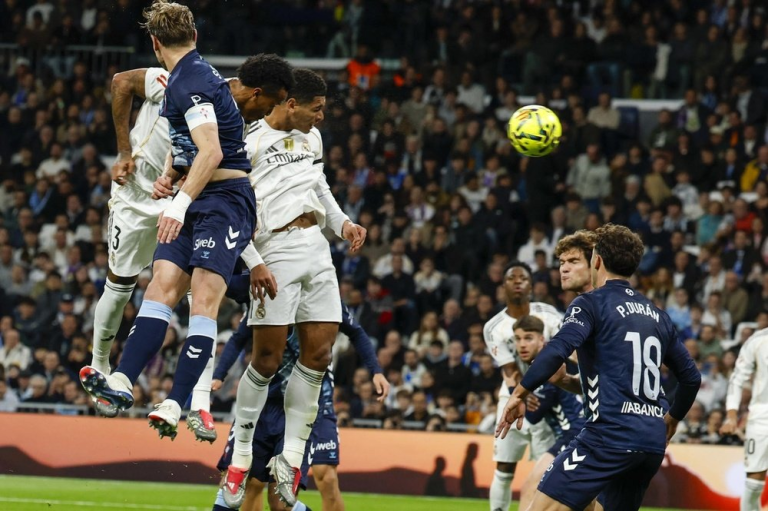
European football body UEFA hailed the “more dynamic” new format of the Champions League as a huge success after the first phase concluded on Wednesday while all of the continent’s biggest clubs survived to reach the knockout stage.
“It’s nice to have a bit more jeopardy,” Real Madrid’s English superstar Jude Bellingham told UEFA.com after the reigning champions rounded out the league phase with a 3-0 win against Brest in France. He was not referring to that particular game, one of 18 played simultaneously on the eighth and last matchday, a frenzied night which saw a total of 64 goals fly in around Europe, including one for Bellingham himself.
It was rather a reference to the fact that the new format – with all 36 clubs playing eight games against eight different opponents – took some getting used to for every club, even the biggest fishes.
Madrid were themselves caught out as they lost three of their first five matches. Manchester City certainly faced jeopardy as the competition’s winners in 2023 needed to win their last game at home to Club Brugge in order to avoid elimination, and found themselves 1-0 down at half-time. They came back to win 3-1 to avoid humiliation and reach the knockout round play-offs, and Club Brugge also went through.
UEFA introduced this new format to replace the group system which had been in place for two decades, doing so in response to the threat of a breakaway Super League involving a select band of giant clubs. European football’s governing body is now beating its chest about the success of the new format in “delivering on its promise to reinvigorate” a competition which had gone slightly stale in the group stage.
Only two clubs came into the final matchday having secured direct qualification for the last 16, without having to go through the play-offs. Only nine had been eliminated, leaving 25 with something to play for in their last game.




